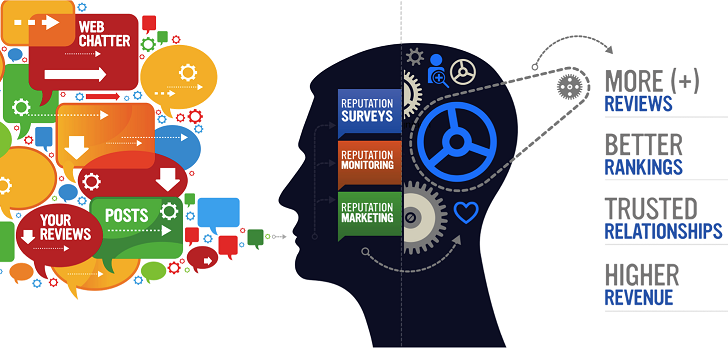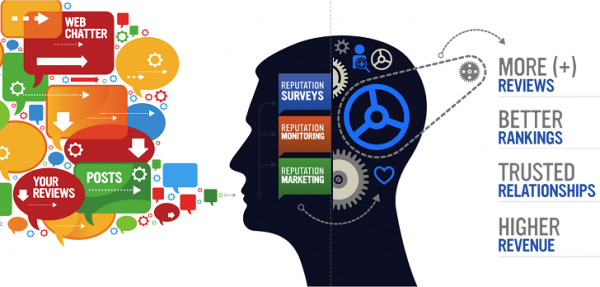Brand management in Nigerian companies and across the world is very essential towards a company’s development and its execution can tie into the success or failure of a business venture.
When you have a proper brand management strategy, your level of commitment assures your clients, consumers, stakeholders and anyone else that your business is trustworthy and they can do business with you.
With the growth of the internet in Nigeria it is important that we pay attention to online brand management which simply put, is monitoring and guiding the way your brand is viewed online.
This includes monitoring public perception, social media coverage, article, blog publication from other sources about keywords such as insurance and more importantly discussions about your brand, search engine results, forum publications and anywhere you can find online conversations about your brand.
A study by the market research firm Ipsos found that 78% of consumers are influenced by online research, which means that approximately 78% of people right now are influenced by what they are seeing online about your brand and are making valid decisions concerning your brand because of this information.
That’s why it’s important to control as much as possible the information they get to view and read about your company online and that’s the power of online brand management. By managing your online brand, you can leave a positive lasting impression on your prospects and drive brand growth and customer reach.
Here Are Five Tips to Manage Your Online Brand Management
1. Create consistent brand guidelines.
Not having a consistent theme across your online activities will negatively impact your brand and will absolutely make your brand to lose top of mind in the minds of your customers. Inconsistency makes your brand forgettable.
If you are a health insurance company, you don’t want your social media pages to have a central theme on health insurance and your website is talking about other services, consistency is important to build trust and comfort with your audience.
Every single page, blog post, Twitter post and Facebook post must have a central theme for your brand guidelines, and before you develop these pages, you have to put all of this into consideration.
Clear brand guidelines reinforce your company’s themes and identity, allowing you to voice what sets you apart from your competition. Define guidelines regarding messaging, design elements, fonts, colours, logos, imagery, etc. when developing and enforcing your brand.
2. Let brand representatives be educated on brand guidelines.
Brand guidelines are imperative for strengthening your brand, but they go nowhere unless utilized. That means that anyone representing your brand, from employees to contractors, needs access to the updated version of the brand information for consistency.
Documentation is very important in building a brand structure, the strategy behind the brand guidelines have to be documented and communicated to the people who are to implement this guidelines in various departments of your company.
It goes beyond direct customer interaction; every employee must realize that even their social networks have a huge impact on the brand, and they must be mindful about how the company brand is represented across all social channels.
3. Measure online brand spread.
On social media, forums, articles and all sorts of other online discussion venues, your brand can become the topic of conversation in many different places. What’s being said about your brand? Most importantly, how is it affecting your reputation?
By digging up where your brand is being discussed, you’ll be able to monitor your company’s online mentions. In addition, it’s a good idea to find sites related to your industry and target audience, then establish a presence in the discussion. Then peek in on the competition to see how they are handling their online brand and what is working (or not working) for them.
4. Respond to discussions about your brand.
Once you find where your people are discussing your brand, it’s time to join in. The goal is to positively interact to comments and questions while constructively responding to criticism.
Don’t delete comments even though they are negative about your brand, this makes you appear a lot more open and you can respond to negative comments and spin them in your favour. But spams should not be allowed on your page.
Negative feedback can turn into something positive if you demonstrate that your team is willing to promptly respond and make it right for the customer.
Quality service reflects well on your online brand, and you’ll find that making that extra effort can often smooth over any bumps in the road.
In addition, actively contribute to the community by leading discussions about trends, challenges and solutions, thus showing that your brand offers both thought leadership and customer care.
5. Use online brand management tools.
The starting point for the previous points begin with using the right tools to manage your brand. Google Alerts is an amazing tool to keep up with keywords relevant to your industry as well as monitor what people are saying about your brand.
If you operate an insurance company for instance, you can set up an alert for insurance companies in Nigeria as a keyword and another for your company name, so anytime your company is mentioned on the web, you are sent an email or alerted via RSS depending on the output you choose.
In addition, specialized applications such as Hootsuite, Buffer, Zapier and Twitterfeed provide various monitoring tools across social media to track brand mentions and analyze social media traffic.
To learn more on digital marketing tips, you can contact Damola directly by clicking here.


